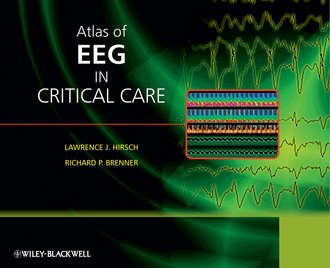
Полная версия
Atlas of EEG in Critical Care
As the population ages, technology improves, intensive care medicine expands and neurocritical care advances, the use of EEG monitoring in the critically ill is becoming increasingly important. This atlas is a comprehensive yet accessible introduction to the uses of EEG monitoring in the critical care setting. It includes basic EEG patterns seen in encephalopathy, both specific and non-specific, nonconvulsive seizures, periodic EEG patterns, and controversial patterns on the ictal–interictal continuum. Confusing artefacts, including ones that mimic seizures, are shown and explained, and the new standardized nomenclature for these patterns is included. The Atlas of EEG in Critical Care explains the principles of technique and interpretation of recordings and discusses the techniques of data management, and 'trending' central to long-term monitoring. It demonstrates applications in multi-modal monitoring, correlating with new techniques such as microdialysis, and features superb illustrations of commonly observed neurologic events, including seizures, hemorrhagic stroke and ischaemia. This atlas is written for practitioners, fellows and residents in critical care medicine, neurology, epilepsy and clinical neurophysiology, and is essential reading for anyone getting involved in EEG monitoring in the intensive care unit.

